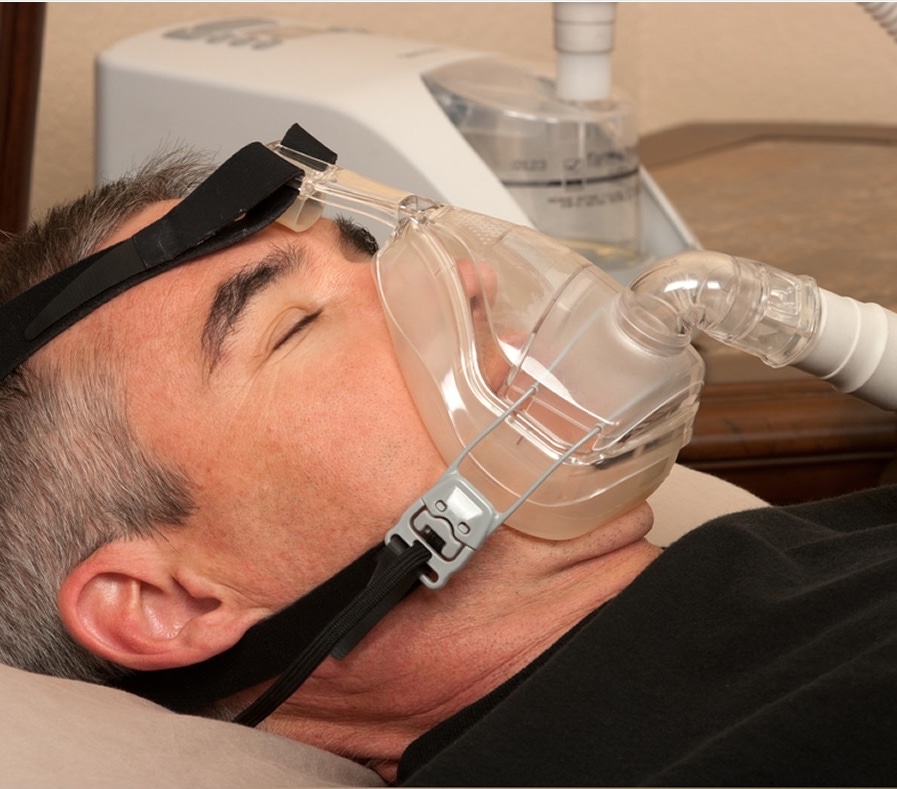Sleep apnea is a serious sleep disorder. People with sleep apnea disorder don’t take in enough oxygen. Therefore, a person who has sleep apnea, their breathing repeatedly stops and starts during sleep. If you snore loudly and after a full night’s sleep you feel tired, you might have sleep apnea.
Many people think that their sleep cycle is normal but they are not aware that they have some breathing problems. If you kept it untreated, sleep apnea can cause several health complications:
- Mental health issues
- Lead to poor immune function
- Memory loss
- Increase your risk of heart failure
Below are three main types of sleep apnea.
- Obstructive sleep apnea – It occurs when throat muscles relax.
- Central sleep apnea – This occurs when your brain doesn’t send proper signals to the muscles that control breathing.
- Complex sleep apnea syndrome – This occurs when someone has both obstructive sleep apnea and central sleep apnea.
Here, learn more about the symptoms, causes, and treatment options.
 SYMPTOMS OF SLEEP APNEA
SYMPTOMS OF SLEEP APNEA
Sometimes it becomes difficult to determine which type of sleep apnea you have. The most common signs and symptoms of sleep apneas include:
- Gasps For Air
- Loud Snoring
- Fatigue
- Waking Up Several Times A Night To Urinate
- Awakening With A Dry Mouth Or Sore Throat
- Morning Headache
- Restless Sleep Or Insomnia
- Difficulty Concentrating
- Excessive Daytime Sleepiness
- Irritability
CAUSES OF SLEEP APNEA
Sleep apnea can be caused by a person’s physical structure or medical conditions. Various factors can cause either Obstructive sleep apnea or central sleep apnea. They include the following:
- When your throat muscles relax, the airway narrows or closes as you breathe in.
- Lower the oxygen level in your blood.
- You might snort, choke or gasp this can repeat itself five to 30 times or more each hour, all night.
- Nasal congestion
- When your brain fails to transmit signals to your breathing muscles.
These causes can result from:
- Obesity
- Large Tonsils
- Endocrine Disorders
- Neuromuscular Disorders
- Heart Or Kidney Failure
- Certain Genetic Syndromes
- Premature Birth
- Thyroid Problems

DIAGNOSIS OF SLEEP APNEA
Your doctor analyses your signs and symptoms and sleep history. After analysis, a sleep specialist can help you with further evaluation. During the evaluation, your overnight sleep, breathing, and other body functions will be monitored at a sleep center.
Tests to detect sleep apnea include:
- Nocturnal polysomnography- During this test, an equipment monitor monitors your heart, lung, and brain activity, breathing patterns, arm and leg movements, and blood oxygen levels while you sleep.
- Home sleep tests – These tests usually measure your heart rate, blood oxygen level, airflow, and breathing patterns.
If the results are abnormal, the doctor prescribes you therapy without further testing. Your doctor can refer you to an ear, nose, and throat doctor to rule out blockage in your nose or throat.
TREATMENT OF SLEEP APNEA
Treatment aims to normalize breathing during sleep. The doctor may recommend some lifestyle changes, breathing devices such as a positive airway pressure (PAP) machine, mouthpiece, or implant to help you maintain an open airway during sleep. Treatment options are depending upon the type and severity of your sleep apnea.
Healthy lifestyle changes
To treat your sleep apnea, your doctor will recommend that you adopt lifelong healthy lifestyle changes.
- Heart-Healthy Diet.
- Limiting your alcohol intake before bedtime.
- Regular physical activity.
- Maintain a healthy body weight.
- Develop healthy sleeping habits.
- Quit smoking.

Continuous Positive Airway Pressure (CPAP) Therapy
This is an important treatment for sleep apnea. The CPAP therapy keeps the airway open by providing air pressure through a mask while you are sleeping.
Some people face trouble using CPAP and stop the treatment and some try to learn and adjust the tension of the straps on the mask to obtain a comfortable and secure fit. Don’t stop using the CPAP machine, talk with your doctor and take their opinion.
If you are still snoring or begin snoring again, contact your doctor.
Mouthpieces
Another option is wearing an oral appliance designed to keep your throat open.
Mouthpieces are typically custom-fit devices that you have to wear while sleeping. It is another option to keep your throat open. There are two types of mouthpieces, they work differently to open the upper airway.
- Mandibular repositioning mouthpieces are devices that cover the upper and lower teeth. They hold the jaw in a position that prevents it from blocking the upper airway.
- Tongue retaining devices are mouthpieces that hold the tongue in a forward position to stop it from blocking the upper airway.
If you have mild sleep apnea, your doctor may prescribe a mouthpiece. To get this mouthpiece, you have to visit a dentist.
Medication
Some drugs are helpful for sleep apnea. But use them only after the consultation with a sleep specialist. These drugs may have some side effects. Also, they are not suitable for everyone.
- Acetazolamide
- Zolpidem
- Triazolam
Home Remedies
Home remedies are beneficial for sleep apnea patients. Here are some treatments that can reduce sleep apnea symptoms.
- Maintain a healthy weight
- Yoga
- Alter your sleep position
- Use a humidifier
- Avoid alcohol
- Stop smoking
Surgery
If all the above treatments have failed, surgery is an option to treat sleep apnea. Possible surgical procedures include:
- Tissue removal
- Tissue shrinkage
- Jaw repositioning (Maxillary)
- Implants
- Nerve stimulation
- Tracheostomy
Sleep apnea is a common problem that causes you to pause breathing during sleep. It can lead to fatigue and other complications.
If anyone is experiencing daytime sleepiness, visit Specialty Care Clinics and discuss your problem with our specialists. Our experts can help you to find out the reason and give suggestions to solve it.
Call us at (469) 545-9983 to book an telehealth appointment for an at home check-up.
